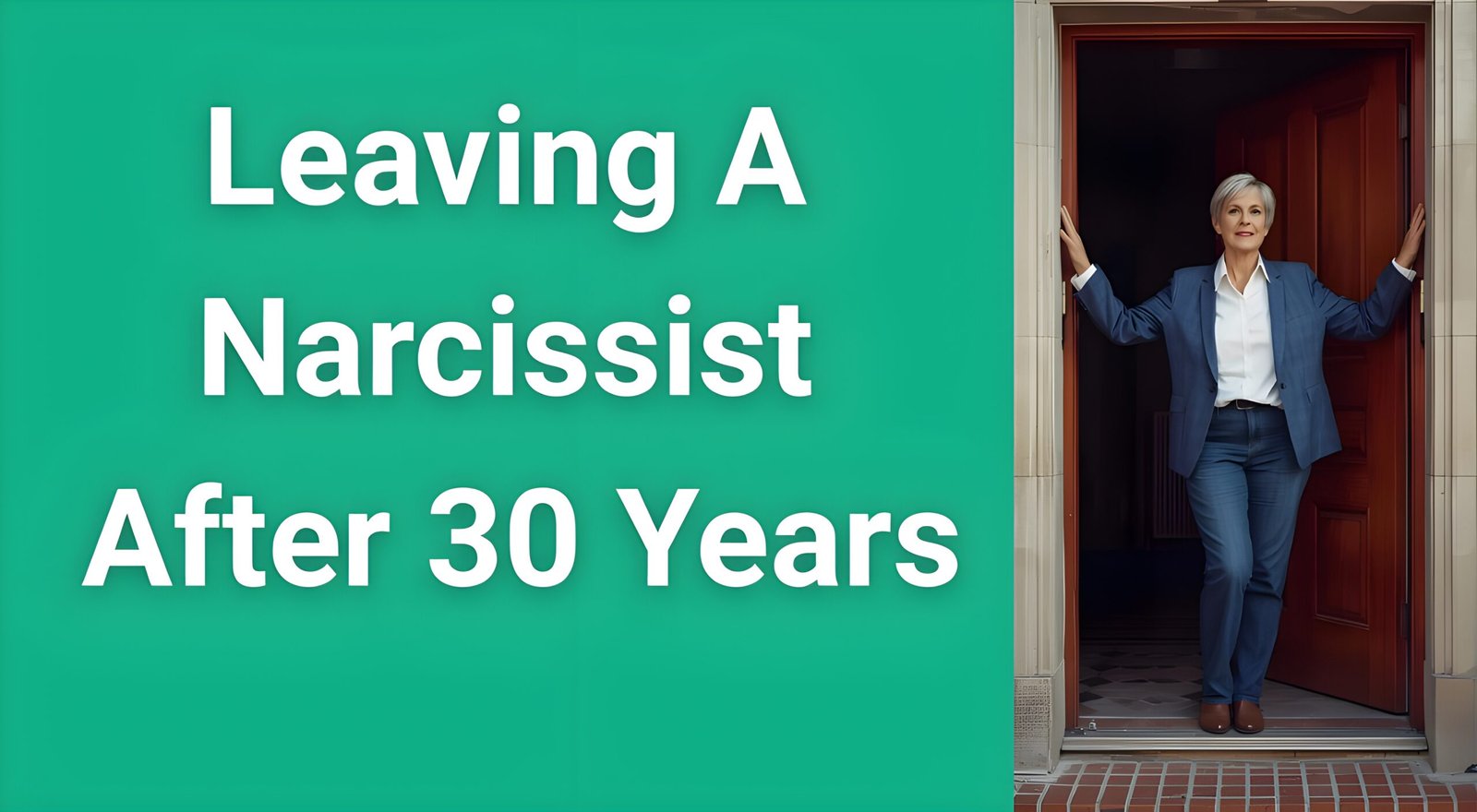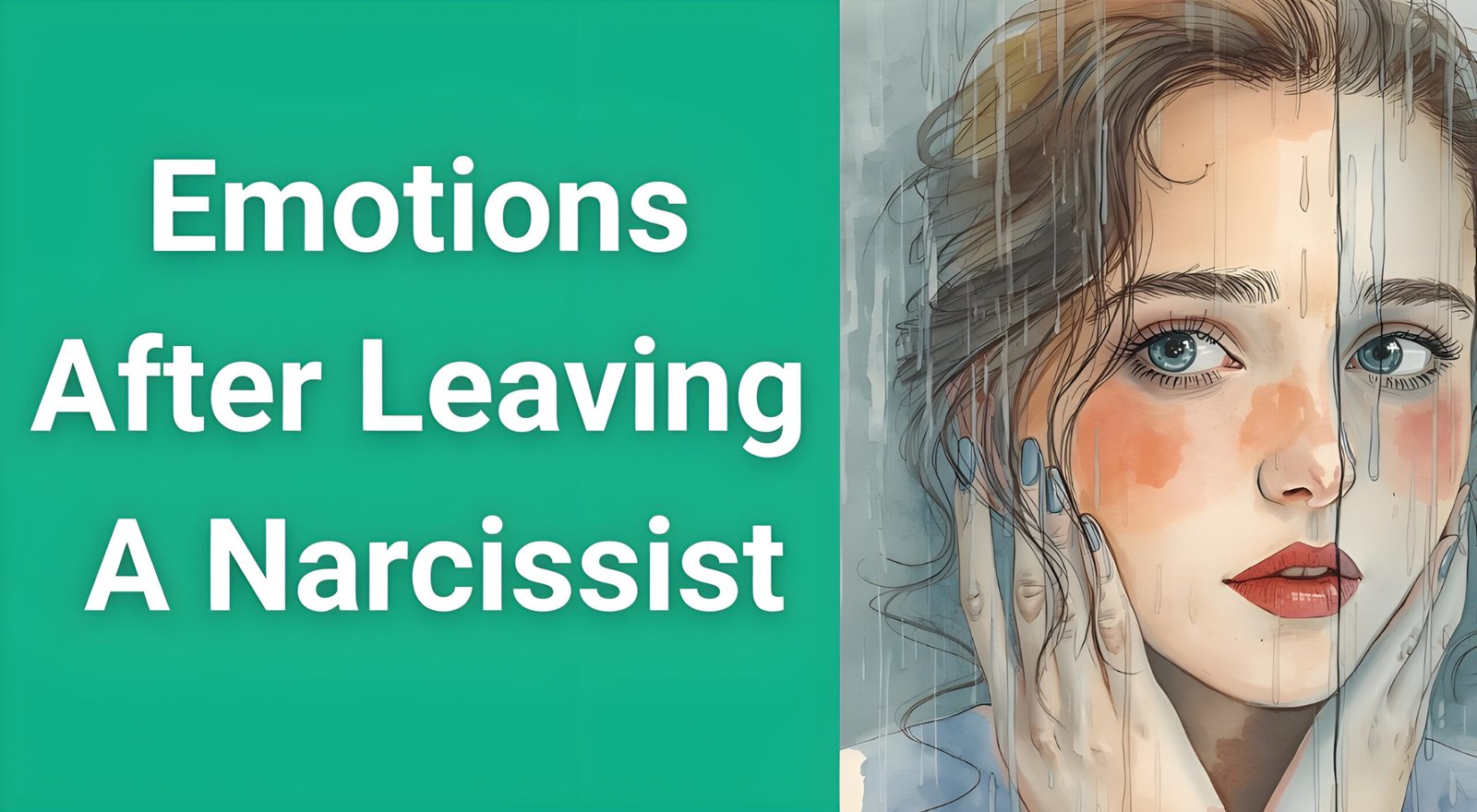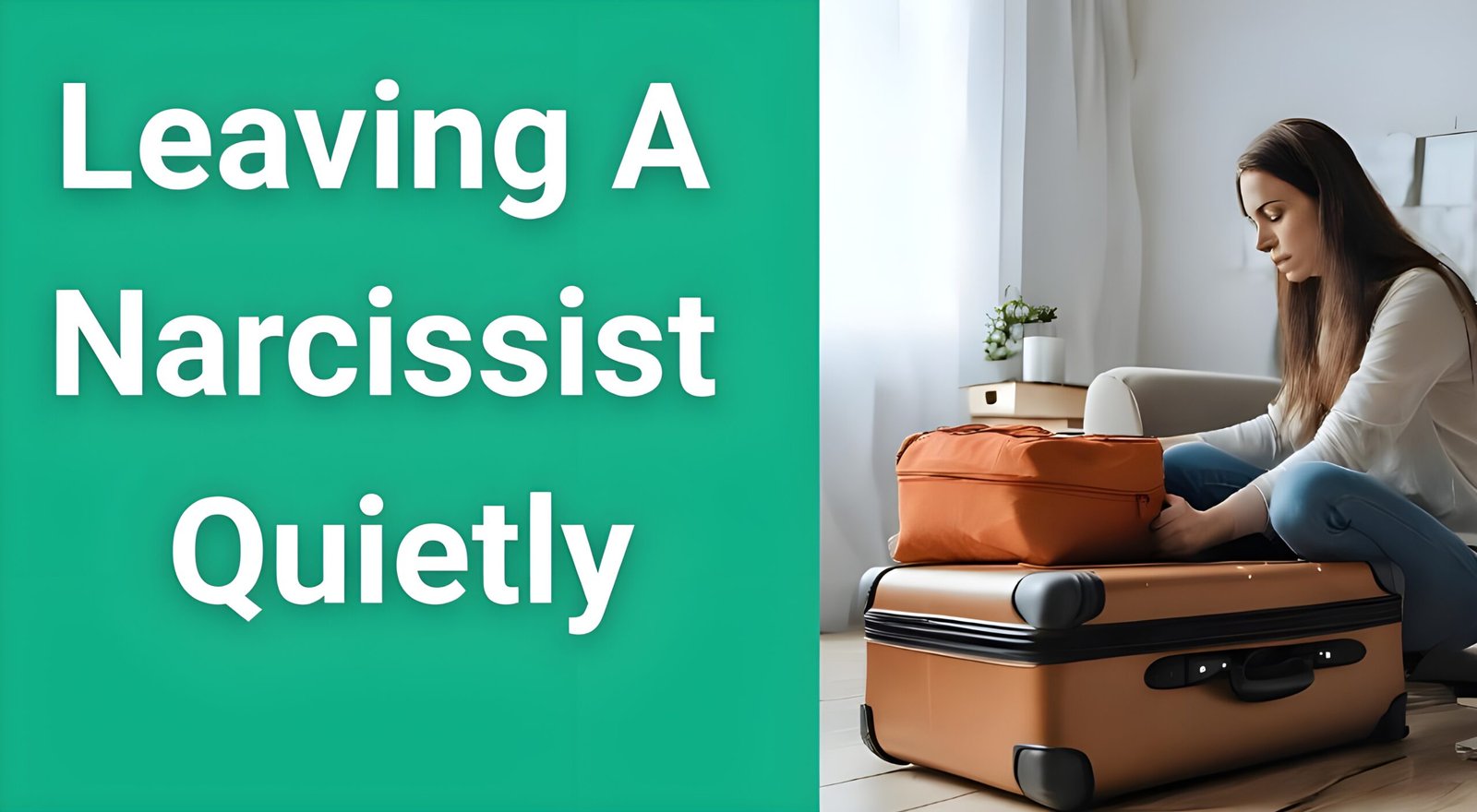Leaving a narcissist that is disabled presents one of the most emotionally complex and ethically challenging situations you can face. You’re caught between protecting yourself from abuse and feeling guilty about leaving someone who depends on you due to their disability. This internal conflict is real, valid, and shared by thousands of survivors who’ve walked this difficult path before you.
- Understanding the Unique Dynamics of Narcissistic Abuse and Disability
- Recognizing When It’s Time to Leave
- Creating Your Safety Plan: Practical Steps for Leaving
- Addressing the Care Transition Ethically
- Managing Guilt and Emotional Manipulation
- Building Your Support Network
- Protecting Yourself During and After the Exit
- Specialized Resources and Professional Support
- Addressing Common Concerns and Misconceptions
- Creating Your New Life After Leaving
- When Professional Assessment May Be Needed
- Resources for Your Journey Forward
- Frequently Asked Questions
- Conclusion: Your Safety and Well-being Matter
The truth is that leaving a narcissist that is disabled requires the same safety planning and emotional preparation as leaving any narcissistic abuser, with additional considerations for their care needs and your own moral concerns. Disability does not excuse abuse, manipulation, or emotional cruelty. Your safety, mental health, and well-being matter just as much as anyone else’s.
Understanding the Unique Dynamics of Narcissistic Abuse and Disability
When dealing with a narcissist who has a disability, the manipulation tactics become more complex and guilt-inducing. They may use their condition as a tool for control, making statements like “You’re abandoning me when I need you most” or “No one else will ever love someone like me.” These tactics are designed to exploit your empathy and compassion.
Research shows that people with disabilities can be both victims and perpetrators of abuse, just like anyone else. The presence of a disability doesn’t change the fundamental patterns of narcissistic behavior – it simply adds another layer to their manipulation strategies.
Common Manipulation Tactics Used by Disabled Narcissists
Disability-Related Guilt Trips: They weaponize their condition to make you feel responsible for their well-being beyond reasonable expectations. Phrases like “If you leave me, I’ll have no one” or “You’re cruel for abandoning a disabled person” are emotional manipulation tactics.
Medical Martyrdom: They may exaggerate their limitations or refuse help from other sources to maintain dependency on you. This creates an artificial sense of being irreplaceable in their care.
Public Perception Management: Narcissists excel at presenting themselves as victims to outsiders. With a disability, this becomes even more powerful – they may portray you as the heartless person abandoning someone vulnerable.
Isolation Through Dependency: They may resist building other support networks or relationships, insisting that only you truly understand their needs. This manufactured dependency becomes a chain that keeps you bound to the relationship.
Recognizing When It’s Time to Leave
The decision to leave any relationship is deeply personal, but certain warning signs indicate that staying may be more harmful than leaving. When a narcissist that is disabled becomes abusive, their condition doesn’t negate the impact of their behavior on your mental health and safety.
Red Flags That Transcend Disability
Emotional abuse doesn’t become acceptable because someone has physical limitations. Watch for these patterns:
- Constant criticism, belittling, or humiliation
- Controlling behavior over your finances, social connections, or daily activities
- Gaslighting about their treatment of you or your memories of events
- Threats to harm themselves if you don’t comply with their demands
- Using their disability to guilt you into staying or doing things against your will
- Preventing you from seeking support or maintaining relationships with others
- Making you responsible for their emotions and reactions to everything
The Guilt Complex: Why Leaving Feels So Wrong
Society teaches us to care for vulnerable individuals, and this compassionate instinct can be exploited by manipulative people. Your guilt about leaving a narcissist that is disabled is normal but shouldn’t override your right to safety and happiness.
Many survivors report feeling like they’re betraying their moral values by leaving someone who appears vulnerable. This guilt is often the strongest chain keeping you in an abusive situation. Remember that true vulnerability looks different from manipulative behavior designed to control you.
Creating Your Safety Plan: Practical Steps for Leaving
Leaving a narcissist that is disabled requires careful planning, especially if you’ve been their primary caregiver or support person. Your safety plan should address both immediate exit strategies and long-term considerations for their care transition.
Phase 1: Assessment and Documentation (Weeks 1-2)
Document everything systematically. Keep records of abusive incidents, manipulative behavior, and any threats made. This documentation serves multiple purposes – it helps you maintain clarity about why you’re leaving and provides evidence if legal protection becomes necessary.
Create a realistic assessment of their actual care needs versus manufactured dependency. Many narcissists exaggerate their limitations to maintain control. Research what professional care services, family support, or community resources might be available for them.
Identify your support network before making any moves. Reach out to friends, family members, therapists, or support groups who can provide emotional and practical assistance during your transition. If you’ve been isolated during the relationship, rebuilding these connections is crucial.
Phase 2: Resource Coordination (Weeks 3-4)
Research care alternatives for the narcissistic person before you leave. This isn’t your responsibility, but having this information can help alleviate some guilt and prevent them from claiming you’ve left them with no options.
Contact local disability services, family members who might provide support, or professional care agencies. Even if they refuse these resources initially, having them identified and contacted demonstrates that you’ve made reasonable efforts to ensure their basic needs can be met.
Secure your financial independence if finances have been shared or controlled. Open separate bank accounts, understand your credit situation, and gather important financial documents. Financial abuse is common in narcissistic relationships and may be intensified when disability benefits or care expenses are involved.
Phase 3: Exit Strategy Implementation (Week 5)
Choose your timing carefully but don’t delay indefinitely waiting for the “perfect” moment. Narcissists rarely make leaving easy, and someone who uses their disability manipulatively will likely escalate their tactics once they sense you’re pulling away.
Have a specific destination planned where you can stay safely, whether with family, friends, or in temporary housing. If possible, move your essential belongings gradually rather than trying to pack everything on exit day.
Prepare for escalation in their behavior once they realize you’re serious about leaving. This might include medical emergencies (real or manufactured), suicide threats, or attempts to rally others to pressure you into staying.
Addressing the Care Transition Ethically
One of the most challenging aspects of leaving a narcissist that is disabled involves ensuring they have access to appropriate care while maintaining your boundaries and safety. You can act ethically without sacrificing your well-being.
Professional Care Resources
Connect them with professional services before your departure when possible. Many communities offer disability support services, case management, or care coordination that can help bridge the gap after you leave.
Contact adult protective services if you have concerns about their ability to care for themselves safely. These professionals can assess the situation objectively and coordinate appropriate interventions if needed.
Involve family members or other support people who might be willing to help coordinate care. While you shouldn’t expect others to take on abusive behavior, they may be willing to help ensure basic needs are met during the transition.
Setting Boundaries Around Care Responsibility
Remember that being in a relationship with someone doesn’t make you their designated caregiver for life. Romantic partners, even spouses, aren’t legally required to provide personal care indefinitely, especially in abusive situations.
Professional caregivers, family members, and community services exist specifically to provide care when needed. Your leaving doesn’t condemn them to neglect – it opens the door for appropriate, professional support systems to be established.
Managing Guilt and Emotional Manipulation
The psychological manipulation around guilt is often the strongest weapon a narcissistic person has when they’re also disabled. Understanding that guilt-based manipulation is still emotional abuse helps you maintain perspective during difficult moments.
Reframing Your Decision
You’re not abandoning someone in need – you’re removing yourself from an abusive situation while ensuring appropriate care resources are available. There’s a significant difference between these two actions.
Your decision to leave doesn’t make you heartless, cruel, or uncaring. It makes you someone who recognizes that abuse is unacceptable regardless of the circumstances surrounding it.
Consider that by staying in an abusive dynamic, you might actually be enabling unhealthy behaviors and preventing them from developing more appropriate coping mechanisms and support systems.
Handling Guilt-Inducing Statements
Prepare responses to common guilt-inducing phrases they might use:
When they say “You’re abandoning me when I need you most,” remember that needing support doesn’t give anyone the right to be abusive. Professional care providers can meet their practical needs without accepting manipulative behavior.
If they claim “No one else will understand me like you do,” recognize this as an attempt to make themselves seem uniquely dependent on you. Trained professionals understand disability and care needs without requiring emotional manipulation.
The statement “You’re cruel for leaving a disabled person” attempts to make your disability status the issue rather than their abusive behavior. Disability doesn’t grant immunity from accountability for how we treat others.
Building Your Support Network
Leaving a narcissist that is disabled often requires more support than leaving other abusive relationships because of the additional guilt and social pressure you may face. Building a strong support network becomes essential for both your exit strategy and long-term recovery.
Professional Support Options
Trauma-informed therapists who understand both narcissistic abuse and disability dynamics can provide crucial guidance. Look for professionals who won’t immediately assume you should stay because your partner is disabled, but who also understand the legitimate complexities involved.
Support groups for abuse survivors can connect you with others who understand the unique challenges you’re facing. Online communities may be particularly valuable if local resources are limited.
Legal consultation may be necessary if you’re married, have shared assets, or if your partner makes threats about what will happen if you leave. Family law attorneys can explain your rights and responsibilities clearly.
Personal Support Systems
Reconnect with friends and family members who may have been pushed away during the relationship. Narcissistic partners often isolate their victims, making it feel like no one cares about your situation. Most loving relationships can be rebuilt once you’re ready to re-engage.
Consider joining communities or groups related to your own interests and healing. This helps rebuild your identity beyond being someone’s caregiver or target of manipulation.
Develop practical support for your transition – people who can help with moving, provide temporary housing, offer financial assistance, or simply be available for emotional support during difficult moments.
Protecting Yourself During and After the Exit
The period immediately before, during, and after leaving can be the most dangerous time in any abusive relationship. When the narcissistic person also has a disability, they may use different tactics but the risk can be just as real.
Safety Planning Specifics
Expect escalation in manipulative behavior once they realize you’re serious about leaving. This might include medical crises (which could be legitimate or manufactured), threats of self-harm, or attempts to involve others in pressuring you to return.
Document any threats or concerning statements they make about what will happen if you leave. If they threaten self-harm or suicide, contact appropriate crisis services – don’t let these threats manipulate you into staying.
Prepare for flying monkeys – people they recruit to pressure you into returning. They may portray themselves as a vulnerable disabled person being heartlessly abandoned, which can be a compelling narrative for others who don’t understand the full situation.
Maintaining No Contact
Establish and maintain clear boundaries about communication after you leave. If ongoing contact is absolutely necessary due to legal or practical matters, use email or text rather than phone calls, and consider having a third party facilitate communication.
Block them on social media and consider making your own profiles private during your initial transition period. They may use social media to monitor your activities or attempt to draw you back into communication.
Resist the urge to check on their well-being frequently after leaving. This natural concern can become an opening for renewed manipulation and prevents both of you from adjusting to the new situation.
Specialized Resources and Professional Support
Finding appropriate professional help when dealing with the intersection of narcissistic abuse and disability can be challenging, but specialized resources exist to support your specific situation.
Therapeutic Support Options
Look for therapists who have specific training in both trauma recovery and disability issues. Many abuse survivors find that general therapists don’t fully understand the complexity of leaving someone who has legitimate care needs alongside abusive behaviors.
Consider working with someone who uses trauma-informed approaches like EMDR, somatic therapy, or specialized abuse recovery protocols. The psychological impact of guilt-based manipulation can create lasting effects that benefit from specialized treatment approaches.
Group therapy or support groups specifically for abuse survivors can be incredibly validating. Hearing others share similar experiences helps normalize your feelings and provides practical strategies from people who’ve walked similar paths.
Practical Resources
Disability advocacy organizations in your area may be able to provide guidance about care resources for your former partner while also understanding your need for safety and boundaries.
Legal aid societies often provide low-cost consultation about your rights and responsibilities when leaving a relationship involving disability and potential care duties.
Crisis hotlines specializing in abuse can provide immediate support during difficult moments, even if your situation feels different from “typical” domestic violence scenarios.
Addressing Common Concerns and Misconceptions
Many people hesitate to seek help or leave because they believe their situation is too unique or that others won’t understand the complexity of loving someone who is both disabled and abusive. These concerns are valid but shouldn’t prevent you from seeking support and safety.
“But They Really Do Need Help”
Yes, they may have legitimate care needs, and recognizing this shows your compassion and empathy. Needing care doesn’t excuse abusive behavior, and you’re not the only person in the world capable of providing appropriate support.
Professional caregivers, family members, friends, and community services exist specifically for these situations. By leaving, you’re not condemning them to neglect – you’re creating space for healthier support systems to develop.
Your care, when provided under duress or in exchange for abuse, may not actually be helping them develop independence or appropriate relationships with others.
“People Will Think I’m Terrible”
Some people may not understand your decision initially, especially if they only see the public persona your former partner presents. This doesn’t make your decision wrong or your safety less important.
True friends and family members who understand the full situation will support your decision to prioritize your safety and well-being. Those who don’t may need time to understand, or their opinions may not be worth preserving.
Remember that people’s opinions don’t change the reality of your experience or your right to live free from abuse and manipulation.
“I Should Be Able to Handle This”
No one should have to “handle” abuse, regardless of the circumstances surrounding it. The idea that you should be able to manage being mistreated because of someone else’s vulnerability is itself a harmful misconception.
Professional caregivers receive training, supervision, and support systems precisely because caring for others – especially others with complex needs – is challenging work that shouldn’t be done in isolation.
You deserve relationships built on mutual respect and care, not obligation and guilt.
Creating Your New Life After Leaving
Recovery from leaving a narcissist that is disabled involves rebuilding your identity, processing complex emotions, and learning to trust your judgment again. This process takes time and often requires professional support, but thousands of survivors have successfully created fulfilling lives after similar situations.
Emotional Recovery Process
Allow yourself to grieve the relationship you thought you had or hoped you could have. Even abusive relationships involve real emotions and shared experiences that deserve to be mourned when they end.
Processing guilt is often the longest part of recovery for people in your situation. Working with a trauma-informed therapist who understands narcissistic abuse can help you separate appropriate concern from manipulative guilt tactics.
Rebuild your sense of identity beyond being someone’s caregiver or target of manipulation. Reconnect with interests, goals, and relationships that existed before this situation consumed your energy.
Practical Life Rebuilding
Reestablish financial independence if your finances were entangled or controlled. This may involve rebuilding credit, establishing new accounts, or developing job skills if you left work to provide care.
Create new living arrangements that feel safe and comfortable for you. This might be temporary initially, but having space that belongs to you and reflects your needs is part of reclaiming your life.
Develop new routines and relationships that aren’t centered around caregiving or managing someone else’s emotions. Rediscover what brings you joy and fulfillment independent of someone else’s needs or approval.
When Professional Assessment May Be Needed
In some cases, leaving a narcissist that is disabled may require professional intervention to ensure their safety while protecting your own. Understanding when and how to involve appropriate services can help you leave ethically while maintaining boundaries.
Involving Adult Protective Services
If you have genuine concerns about their ability to care for themselves safely after you leave, contacting adult protective services for assessment may be appropriate. These professionals can evaluate the situation objectively and coordinate necessary interventions.
Provide factual information about their care needs, available resources, and any concerning behaviors without minimizing your own need for safety and boundaries.
Remember that involving professional services isn’t about punishment or revenge – it’s about ensuring appropriate care while allowing you to maintain healthy boundaries.
Working with Case Managers
Many disabilities come with access to case management services through state agencies or healthcare systems. These professionals can help coordinate care transitions and may already be familiar with your partner’s needs and situation.
If such services aren’t currently in place, your local disability services agency can provide information about how to access appropriate support systems.
Don’t feel obligated to serve as the go-between for these services indefinitely. Part of leaving involves transferring care coordination to appropriate professionals or family members.
Resources for Your Journey Forward
Specialized support for your unique situation exists, though it may require some research to find providers who understand both narcissistic abuse and disability dynamics.
Expert Analysis and Professional Support
If you’re struggling to understand whether your situation truly constitutes abuse or if you’re questioning your own perceptions, a comprehensive analysis from a certified narcissistic abuse specialist can provide crucial clarity. Getting expert insight into your specific situation helps validate your experiences and provides concrete guidance for moving forward safely.
Professional assessment can help you understand the manipulation tactics being used against you and develop personalized strategies for protection and recovery. This type of specialized analysis often provides the confidence needed to take action when you’ve been doubted your own perceptions.
Breaking Trauma Bonds and Recovering Your Identity
The psychological attachment formed in abusive relationships often creates trauma bonds that make leaving feel impossible, even when you intellectually understand the relationship is harmful. These bonds are especially strong when guilt and caregiving responsibilities are involved.
Structured recovery programs specifically designed for breaking trauma bonds can provide the daily support and practical tools needed to overcome the psychological pull that keeps drawing you back. These programs work by rewiring your brain’s response patterns through consistent, scientifically-based exercises that address the addiction-like nature of traumatic attachment.
Breaking free from trauma bonds requires more than willpower – it requires understanding the neurological changes that occur in abusive relationships and using targeted techniques to restore healthy attachment patterns.
Long-term Recovery Support
Recovery from narcissistic abuse when disability is involved often requires ongoing support and guidance. Having access to resources that address the unique challenges of your situation can make the difference between successfully rebuilding your life and getting pulled back into unhealthy patterns.
Comprehensive guides that address the practical realities of leaving when you can’t immediately escape can provide hope and concrete steps for improving your situation even when leaving isn’t immediately possible. These resources acknowledge that not everyone can leave immediately and provide strategies for protecting yourself while working toward eventual freedom.
Frequently Asked Questions
Am I abandoning someone who truly needs help?
You’re not abandoning them – you’re removing yourself from an abusive situation while ensuring appropriate care resources are available. Needing help doesn’t give anyone the right to be abusive, and professional care providers exist specifically for these situations.
What if they threaten to harm themselves when I try to leave?
Threats of self-harm are serious and should be reported to appropriate crisis services, but they shouldn’t be used to manipulate you into staying in an abusive relationship. Contact emergency services or crisis hotlines when such threats are made, but don’t let them control your decision to prioritize your safety.
How do I know if I’m being too harsh or if this really is abuse?
Abuse doesn’t become acceptable because someone has a disability. If you’re walking on eggshells, being criticized or controlled, having your reality questioned, or being guilted into behaviors that harm your well-being, these are signs of emotional abuse regardless of other circumstances.
What if no one else will help them?
This is rarely actually true, though it may be presented this way to maintain control over you. Professional services, family members, friends, and community resources typically exist. Your leaving may actually motivate them to accept help they’ve previously refused.
Should I wait until their condition improves or stabilizes?
Waiting for someone to change or for circumstances to improve often means waiting indefinitely while your own mental health deteriorates. Abusive behavior patterns typically worsen over time rather than improving, especially when the person faces no consequences for their actions.
How can I leave without feeling guilty forever?
Guilt is a normal response to this situation, but it shouldn’t control your decisions indefinitely. Working with a trauma-informed therapist who understands narcissistic abuse can help you process these feelings and develop healthy perspectives about responsibility and care.
Conclusion: Your Safety and Well-being Matter
Leaving a narcissist that is disabled is one of the most challenging decisions you may ever face, but it’s also potentially one of the most important for your mental health and future happiness. The complexity of the situation doesn’t diminish your right to safety, respect, and emotional well-being.
Remember that thousands of people have successfully navigated similar situations and built fulfilling lives after leaving. Your disability status doesn’t make you less deserving of love and respect, and their disability doesn’t give them the right to abuse you emotionally, mentally, or in any other way.
The guilt you feel demonstrates your compassion and empathy – qualities that make you a good person but that may have been exploited in this relationship. These same qualities will serve you well in building healthy relationships once you’re free from manipulation and abuse.
Professional support, careful planning, and strong boundaries can help you leave safely while ensuring appropriate care resources are available for your former partner. You can act ethically and compassionately without sacrificing your own well-being and future happiness.
Your journey toward freedom begins with recognizing that you deserve better and taking the first small steps toward reclaiming your life. The path forward may be challenging, but it leads to a future where your value isn’t determined by how much abuse you’re willing to tolerate.






